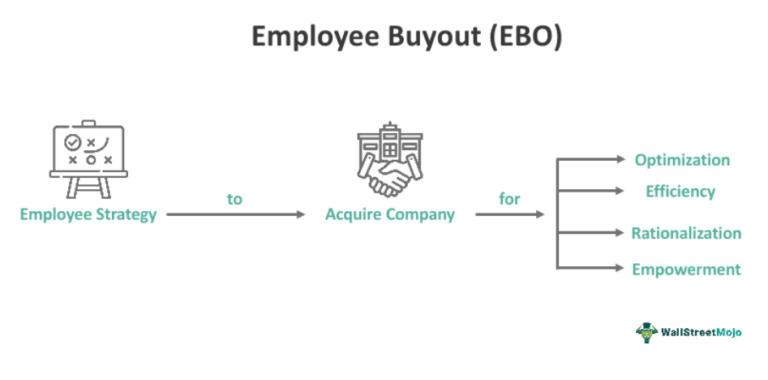
Audience
- Sentiment: Neutral
- Political Group: Moderate
- Age Group: 25-45
- Gender: All
Overview
- The article discusses the unsettling trend of layoffs and their impact on dedicated employees.
- It highlights the shortcomings of performance evaluations and the importance of visibility in retaining jobs.
- Strategies are provided for employees to increase their visibility and safeguard their job security.
Navigating the Ups and Downs of Job Security: What Every Employee Should Know About Layoffs
Imagine pouring your heart and soul into your job. You’ve spent years working late nights, mastering your tasks, and building good relationships with your colleagues. You believe that all your hard work has made you a valuable employee. Yet, one day, you find yourself sitting in a meeting, staring in disbelief as you hear the words, “We have to let you go.” This situation isn’t just a fictional nightmare; it’s a harsh reality that many have faced recently, especially in big companies like Meta and Microsoft. Let’s dig deeper into this unsettling trend of layoffs and what it might mean for all employees, including you.
The Shocking Reality of Layoffs
The past few years have shown us that even the most dedicated employees are not immune to layoffs. Imagine working at a tech giant like Meta, where you’ve tackled project after project successfully, only to scroll through your social media and see your colleagues posting about their sudden job loss. Many of these hardworking employees have shared their shock at receiving unexpected negative performance reviews, leading to their abrupt dismissals. They thought they were doing everything right—meeting deadlines, contributing to team goals—but suddenly, it feels like the ground has slipped from beneath them.
The layoffs are often cloaked in the language of “performance-based” evaluations. Companies want to appear strong and efficient, and they often use these terms to justify letting go of employees. To the outside world, this makes it seem as if these decisions are merely business as usual. But for those on the receiving end, it feels deeply personal and arbitrary.
Understanding Performance Evaluations
So, what’s really happening during these performance evaluations? The truth can be quite unsettling. Performance evaluations are meant to be objective assessments of an employee’s contributions and achievements. However, they can often turn out to be anything but that. In many cases, these evaluations become a subjective process influenced by the relationships you have within the company.
If you have a manager who doesn’t know you well or doesn’t appreciate your work style, you might find yourself unfairly labeled as an underperformer. Research has shown that employees who have strong visibility in their teams, as well as those who engage positively with others, often fare better during these evaluations. This unfair favoritism can leave talented employees, who may not be as visible or who work behind the scenes, at a serious disadvantage. This is where the concept of “visibility over merit” comes into play.
How Companies Decide Who Stays and Who Goes
Now, let’s look at how companies actually make the tough decisions about layoffs. It’s not always a clear-cut process. Managers often decide who to let go during casual group discussions rather than relying on solid evidence or objective data. If someone hasn’t been in the spotlight, their value might be overlooked. Think about it: if you’re working at a company where visibility is crucial, being known by your coworkers and managers becomes essential.
This idea leads to the question: how can employees protect themselves from being caught in the crossfire during layoffs? Here are some strategies you can use to ensure you’re seen as an asset, not a liability.
Building Your Network Within the Company
1. Make Your Work Visible: One of the best things you can do is ensure that your contributions are recognized. Don’t be afraid to share your accomplishments! Use team meetings or internal communication channels to highlight the work you’re doing. You might think this feels like bragging, but in reality, it’s a crucial part of ensuring your efforts don’t go unnoticed.
2. Network Across Teams: Building relationships beyond your immediate team can provide you with a broader support system. Attend company events or social gatherings to meet people in different departments. The more people who know about your work and appreciate what you bring to the table, the more likely you are to be remembered positively in tough times.
3. Cultivate Relationships: Take the time to get to know your colleagues on a personal level. When you have good relationships with people, they’re more likely to advocate for you during challenging times. It’s important to be a team player and show that you care about the success of others, too.
The Importance of Being Adaptable
The job market is changing all the time, and adaptability is key. It’s crucial to stay up-to-date with industry trends and continue developing your skills. This can provide you with new opportunities and make you an even more valuable employee. Whether it’s taking an online course, attending workshops, or seeking mentorship, there are tons of options available that can help you stay competitive in the workforce.
Seeking Feedback and Improvement
Feedback is a gift! If you’re unsure about how you’re performing, ask for feedback proactively. Find out if there are areas where you can improve. Regular check-ins with your manager can help ensure you’re meeting expectations and can alert you to any potential issues before they become significant problems.
Staying Resilient Amidst Uncertainty
It’s normal to feel anxious about your job security, especially if you see others being let go. However, staying resilient is vital. Remember that you can’t control everything, but you can control how you respond to challenging situations. Instead of letting fear dictate your actions, focus on what you can do to advance your career and support your team.
A Shift in Perspective
Amidst the fear of layoffs, think of this as an opportunity to consider your career path. Are you truly happy in your current role? How would you feel about exploring new opportunities in a different organization? The job market is continuously evolving—sometimes, a layoff can be the nudge you need to pursue something new and exciting.
Wrapping It Up
In conclusion, layoffs might seem like an unfortunate event that can strike any employee at any moment. But there are ways to safeguard yourself against being labeled a poor performer and increase your visibility within your organization. By making your contributions known, networking, and developing relationships with your colleagues, you can improve your chances of staying within your job, even when the waves of layoffs begin to crash around you.
Thinking about this topic, what are your thoughts on job security? Have you or someone you know experienced a layoff? How did you handle it? Feel free to drop a comment below and join the conversation! Your experiences could help someone else who is navigating a similar situation.





